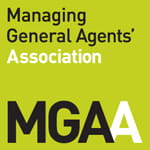
Raising the Bar for FCA Applications: Why “Good Enough” Isn’t Enough
The FCA has published its review of good and poor practice in authorisation and registration applications. This guidance covers not just firm authorisations, but also applications for Senior Management Functions (Approved Persons) and Controllers / Change in Control.
The regulator’s message is clear: high-quality, complete and well-evidenced applications are the only way forward. Poorly prepared submissions cause delays, increase regulatory scrutiny, and in many cases are rejected outright. With the FCA embedding a “stronger gateway” approach within its wider five-year strategy, firms must treat every application — whether for firm authorisation, a new SMF, or a controller approval — as a rigorous test of governance, competence and compliance readiness.
Purpose of the FCA Communication
The FCA’s publication aims to:
- Share examples of poor practice across firm, individual and controller applications, highlighting why so many have failed.
- Set out what good looks like, giving firms a benchmark for the evidence and governance expected.
- Reinforce that applications are not box-ticking exercises — they are fundamental assessments of a firm’s ability (and willingness) to operate to regulatory standards.
- Ensure that firms invest the necessary time, resources and board-level attention before submitting any application.
Implications of Poor-Quality Applications
Submitting weak or incomplete applications creates serious risks:
- Regulatory Setback – Authorisations or approvals may be refused or withdrawn. In cryptoasset registrations, for example, over 90% of applications failed in the past year.
- Delays to Business Plans – Market entry, product launches or changes in ownership are all held back until approvals are secured.
- Resource Strain – Reworking rejected applications consumes compliance, governance and legal resources unnecessarily.
- Board and Leadership Accountability – The FCA views application quality as a reflection of governance and culture. Boards and senior managers are directly accountable for poor preparation.
Focus Areas for Firms
The FCA highlights several areas where applications frequently succeed or fail:
- Firm Authorisation Applications
- Good practice: comprehensive business plans, three-year financial forecasts, tailored AML frameworks, robust risk assessments, evidence of effective outsourcing oversight.
- Poor practice: incomplete policies, unclear business models, under-developed AML frameworks, or failure to explain daily operational processes.
- Senior Management Function / Approved Persons Applications
- Good practice: detailed CVs, clear role descriptions, governance maps showing lines of accountability, and evidence of competence and integrity.
- Poor practice: vague responsibilities, insufficient evidence of relevant experience, or reliance on generic templates without firm-specific context.
- Controllers / Change in Control Applications
- Good practice: transparent disclosure of ownership and voting rights, financial soundness of proposed controllers, assessment of how governance will be affected, and evidence of ongoing oversight arrangements.
- Poor practice: late or incomplete notifications, inadequate financial information on proposed controllers, or failure to explain the strategic rationale for the change.
- Documentation Quality Across All Applications
- All documents should be up-to-date, consistent, tailored to the firm, and signed off through proper governance channels. Copy-and-paste policies and inconsistent submissions are red flags.
Next Steps for Firms
Firms should take proactive steps to strengthen their readiness for any FCA application:
- Pre-Submission Checks – Create an internal checklist covering business plans, policies, governance structures, outsourcing, and AML frameworks. Ensure controllers and SMFs are fully vetted ahead of time.
- Gap Analysis – Review draft applications against FCA examples of poor practice. Correct deficiencies before submission.
- Governance Oversight – Make applications a standing board or committee agenda item, ensuring senior management oversight and accountability.
- Engage Early – Use the FCA’s Pre-Application Support Service (PASS) where available to clarify expectations.
- Prepare for Scrutiny – Anticipate follow-up questions or interviews with proposed SMFs. Ensure all applicants can clearly articulate their responsibilities, experience and risk management approach.
How Can We Help
Navigating the FCA gateway requires precision, preparation and deep regulatory knowledge. Padda Consulting works with firms to strengthen their applications and governance frameworks, ensuring readiness across firm, SMF and controller submissions. Our support includes:
- Application Readiness Reviews – Gap analysis for firm authorisations, SMF approvals and controller applications.
- Documentation & Policy Development – Drafting or refining policies and procedures, business plans, AML frameworks, governance maps, controller information packs and role descriptions.
- Governance & Personnel Advisory – Structuring boards and committees, preparing SMFs for interviews, and advising on controller disclosures.
- Training & Workshops – Preparing senior managers and boards for FCA expectations and application scrutiny.
- FCA Engagement Support – Mock interviews, drafting responses to FCA queries, and practical coaching for direct regulator interaction.
By partnering with Padda Consulting, firms can reduce delays, minimise rejection risk, and approach FCA applications with confidence. Please get in touch if you would like to discuss any applications you are currently going through or any applications you may have on the horizon.

